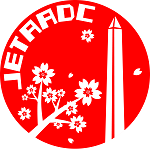Just touched down on U.S. soil, but already itching to get back to Japan? Mark Flanigan knows how you feel. After serving as an ALT in Nagasaki from 2000-2004, he returned to Japan in 2010 as a Rotary Peace Fellow at International Christian University in Tokyo. He currently serves as the Program Director of the Japan ICU Foundation and agreed to give us the inside scoop on the Rotary Peace Fellow program.
Enjoyed your time in Japan as a JET? Looking to get back to Japan at some point, to pursue further professional development? You can do it through Rotary International, by pursuing a graduate degree from one of the best private universities in Tokyo.
The Rotary Foundation accepts new applications annually for its highly-competitive Rotary Peace Fellowship. The Fellowship provides academic and practical training to prepare scholars for leadership roles in solving conflicts around the world. Up to 100 Fellows are selected every year in a globally competitive process based on personal, academic, and professional achievements. Fellows join a growing network of committed alumni employed around the world in diplomacy, government, non-governmental organizations and private corporations.
As a JET Program alumnus (Nagasaki 2000-04), I was fortunate enough to benefit directly from this unique Fellowship opportunity. After six years living and working in the U.S., I returned to Japan once more as a Rotary International Peace Fellow at the International Christian University (ICU) in Tokyo. ICU is one of the six Master’s Degree options available to Rotary Peace Fellows, which specifically provides a fully-funded 24-month MA in Peace Studies in Japan, along with a Japanese language course and the opportunity to intern worldwide (between the first and second year) as part of one’s Thesis research. http://vimeo.com/24037794
While one does not apply directly to ICU, the successful Rotary Peace Fellowship applicant will progress through the standard application/interview processes and then select their top choices from the selected Peace Centers. A number of former JETs, including me, have been quite successful in both requesting and achieving placement at ICU. The ICU Rotary Peace Center tends to look favorably on a demonstrable interest in Japanese language and culture, especially pertaining to themes of peace and post-conflict reconciliation. The Fellowship requires, at a minimum, a bachelor’s degree in a related field; three years of relevant work experience and proficiency in a 2nd language for the MA program (I used my demonstrated Japanese language ability from the JLPT in the case of ICU).
The annual application deadline is in early July. Therefore, the time to start planning your application is NOW! For more specific information on the Rotary Peace Fellowship, the current application is available at www.rotary.org/rotarycenters. You can also find a local Rotary Club for endorsement at www.rotary.org/clublocator. (All Rotary Peace Fellowship applications need the endorsement of your local Rotary district). For additional assistance, please contact the Rotary Peace Center staff at rotarycenters@rotary.org.
Lastly, please feel free to contact me if you have any related questions about the Rotary Peace Fellowship or life at ICU at mflanigan@jicuf.org
Considering graduate school — whether here or abroad? Check out the Graduate School section of the Returnee Handbook, including a brand new listing of scholarships for programs in Japan.


Leave a Reply